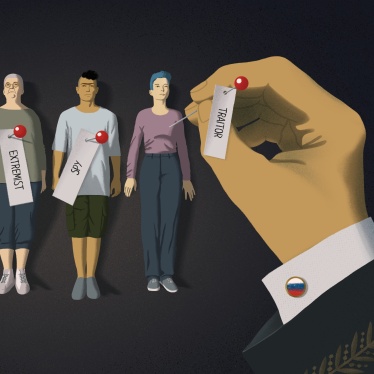It feels like everyone in Europe is caught up in Eurovision fever. The finals of this year’s Eurovision Song Contest, which has been running for 63 years and features contestants from 43 countries, will be on May 12. Who might be the next Celine Dion, or the next ABBA – both of whom blasted into mass popularity through Eurovision? More than 200 million people are expected to be watching Saturday’s finals to find out.
Fifteen million of those viewers are in Russia, and they’ll be treated to a rare spectacle. In a country that has banned positive public expressions of homosexuality it’s rare to see, on broadcast television a performance like Ireland’s Ryan O’Shaughnessy’s. As he sings his ballad, “Together,” he will be accompanied on stage by two men dancing together and holding hands, affirming same-sex relationships everywhere.
He’s not the only one. Over the years Eurovision has developed from a somewhat old-fashioned event into a festival that celebrates diversity. The Israeli contestant Dana International, a transgender woman, won the contest in 1998. Her landmark victory was sweet revenge on everyone who said they felt ashamed that a transgender woman would represent a country at Eurovision. This year Finland will be represented by the openly lesbian singer Saara Aaalto, who leads a group of gay back-up singers on stage in her song, “Monsters.”
The organizer of the Eurovision, the European Broadcasting Union (EBU), barred Mango TV, one of China's most popular TV channels, from airing the song contest after it was discovered that Mango TV had censored LGBT elements of the competition. The EBU took a principled stand and said the censorship was not in line with its values of diversity.
On Saturday however, viewers of the Eurovision Song Contest in countries where homophobia and transphobia are rampant, will get the message that however discriminatory their country’s laws are, LGBT people are not second-class citizens. They have the right to be who they are. They are not alone and their sexual orientation and gender identity are celebrated elsewhere in the world.








